14 – Letter to Mary Ann Smith from Frederick Smith, 1 Jun 1900
The copyright of this material belongs to the Royal College of Veterinary Surgeons. It is available for reuse under a Creative Commons, Attribution, Non-commercial license.
Click here for full transcript of letter
[FS/2/2/4/2/14] (1)
Johannesburg.
1 June 1900
[Salutation Redacted]
[[1]] My last letter to you was written just before we sighted Johann’burg[sic] & while fighting was going on on our left. We expected that morning to have a show but there was very little done they fell back on Elandsfontein a suburb of J’h’burg[sic] & we had a fight for the railway station a pretty little one which resulted in the capture of several engines & a lot of waggons[sic] but before this came off we arrived at Klip Drift where we expected the stand to be made. They had dug their rifle pits but their hearts[?] failed them & [1 word struck through, illeg.] scouts reached Klip Drift station to see the last train steam out with guns etc on board. We occupied their camp a beastly place & containing trunks, pick axes shovels & old clothing. Next morning we pushed on & from the high hills on which we stood got our first view of Johannesburg or rather the gold bearing reefs. The reef runs for 60 miles & has mines all along it, as we stood on the top of the hill overlooking the saddest[?] spot in the world, the staff all cloistered together while the Chief & Kitchener scanned with glasses the whole country two prisoners were brought up one an old Dutchman with a [illeg.] the other a young Jew. The latter had been taken in a neighbouring house which contained Boers. He swore he had never been on Command & he was backed up in this by his wife who accompanied him with a child in her arms. Such a subject for a picture the man expecting to be shot at one, his wife looking distracted, the child in her arms utterly indifferent sucking a piece of chocolate. I do not know what became of him as we pushed on, but I saw General Marshall R.A. take a snap shot of the scene & I hope it may be published. If so you will see me just to one side of the prisoner standing by the side of my horse. We pushed on, paying visits to neighbouring farm houses for food but most of them had been looted by our men the fowls captured eggs & butter gone. I paid 1/- for half a loaf of dough at a house where the mother was sick & full of children, they played with their kittens & little thought what was going on. We left a guard to prevent the woman being disturbed. Would the Boers have done this for us? I set Hallet[?] to work at one
[[2]] place to catch fowls. Can you imagine the miserable[?] Knocked Kneed Hallet catching a fowl? I need [1 word struck through, illeg.] hardly say we had no fowl, but we looted forage for our horses which was very useful for the whole country was on fire, the Boers burned the grass as they went along & for miles the fires raged leaving nothing but a black mass of char [1 line illeg.] the tired dusty troops trudged for miles, the black dust mingled with the brown & their faces & clothing were a sight. At night their fires presented a very pretty appearance. I forgot to say that when we reached Klip River station the last train was going out & the station master set fire to his own house[,] how this was going to injure us was not very clear.
Finally we reached Elands fontein[sic] where the fight for the Railway I mentioned above took place, a train was in the station but could not escape, we got it free & after piled sleepers & stones on the line up & down she steamed like a mouse in a trap while Lee Metford pepper was administered in abundance, finally she gave up the game & surrendered in & the main body of the Boers returned up the hills in the direction of Pretoria there were still plenty of them in Johannesburg. It was nearly dark when the fight was over & we made for the nearest Farm house, by luck we got a nice home used as a barn[.] The owner lived in another a few yards away & here were stowed the Military Foreign attaché with Lord Downe. I slept on the verandah[sic] on a delightful bed of straw of which an abundance existed, such a lovely bed after the hard ground. Every post around the farm was in a few minutes pulled down for fire wood. We sent for the proprietor ordered bread milk & butter, but he could supply nothing. He handed in his rifle & ammunition & though he was safe, when we got there only his terrified wife was to be seen, he & the children were hiding when he found he was not to be shot, he bucked up & did all he could for us. I ordered him to bake bread in his own oven which I told him I would lend him for the occasion, but the oven was already occupied with ducks! for the attaché!
That night & all night long the 7th Division kept rolling up & every man came to this house for wood , it was bitterly cold & the men had neither cloaks nor blankets, they hammered away
[[3]] at the house all night sleep was impossible they tore off the doors, pulled out the windows tore up the floor pulled down the stable, pig styes, dairy & the next morning you never saw such a wreck, excepting the verandah[sic] in which I slept the room occupied by Savage the place was a wreck & beyond recognition, all that was left of the tin dairy was a shapeless mass of iron like a battered kerosene tin.
The whole of the forage in the house we lived in was taken for our troops, my horses lived like fighting cocks. Every particle of wire fence had been pulled down to burn the posts for fire wood. Late at night a fellow of the K O S B’s[1] came & asked whether he might sleep there I gave him a room full of straw, he said he was bitterly cold had no cover & that a brother officer recently recovered from a wound was dying of cold. He went off for their him & they slept with our servants on straw in one of the rooms they described it as delightful. I noticed over the straw bed made by the servants a lace curtain pulled down from the a window!
I had trouble with our Dutch host for finding he was not shot he began to get above himself & the second night of our visit objected to Hallet cutting down a post for fire wood[.] I gave him a good grilling & ordered him to his house. He collapsed & went off. They are curs when tackled. We stopped here two days because on the second day we summoned the town to surrender & out came the commandment to interview Lord Roberts. They could not come to terms & were given 24 hours to reconsider, they said they could not trust the Irish Element of Johannesburg & that they might fire on us in the streets even if the town surrendered. However they thought better of it in 24 hours time but while we were waiting <for> their reply we lost a whole day. On the night of this wasted day as I was warming my feet at the camp fire I heard a voice ask the way to Hd Qts. It turned out to be Churchill who had come in with despatches from Hamilton & with news of French.[2]
We had heard nothing of the battle for two days, Hamilton we knew had been fighting but we did not know the result. The despatches allayed all anxiety. Churchill had ridden from Doornkop a place to the west of Pretoria. He is a wonderful fellow
[[4]] By 10am next day we knew Johannesburg had surrendered & that we were to march through the city & haul up the Flag we started off I on the Chief’s staff as usual & went for miles along dusty roads, such red dust & so think that at times one could not see the man in front of him. In this way I nearly had a nasty accident over two rocks that I suddenly stumbled on in the road but saw just in time as we were cantering & it was a narrow shave. We were now in the suburbs of the city, the whole place was deserted, the houses closed, the windows were nailed up with sheet iron shutters or carefully boarded up[.] The grass grew in the sheets, it was a city of the dead for miles we went & hardly met a soul, I saw a woman in white on a bike she looked at us & rode back hard. There was a black woman on her knees, rubbing her forehead on the ground clapping her hands, shouting & gesticulating. It was a hearty welcome from Boer oppression as we got into the town we went along a street 11/2 miles in length & the people now appeared an enterprising photographer took us as we rode down the street you will see one on the outside of about the tenth row of officers behind the Chief — we rode 5 abreast on my right is Colonel Bunbury[?], next Coney the Parson, then Major Headlam the Gunner I came round with from Natal & then Col. Grierson[?] chief to Kitchener — in front of them were the military attaches
At times we halted to make sure the side sheets were free from assassins as there was a good chance the Chief might be shot at, but at his side was placed the Dutch Commandant & he was carefully guarded on the other. We all kept our eyes wide open for any movement in the crowd of a horrible character but none happened at that time. Slowly we made our way on to the Court House preceded by an advanced guard & let only the City delegates in a cart, at last we arrived we left at 10 am it was now 2.30pm the Transvaal flag was flying the Chief dismounted & went into the court house I dont[sic] know what for. The crowd was now dense, it was with difficulty that it could be kept back & a way made for the troops we all formed up around the flag staff mounted, the Chief returned. The drums & pipes of the Grenadiers arrived everything was ready, at a given signal the Transvaal flag was handed down & the Silk union Jack was run up, three hearty cheers were given, helmets off. we[sic] yelled it was not cheering, a guard of honour had presented arms a God save the Queen was played it consisted of several companies of the Essex Regt. as we cheered the men placed their helmets on their bayonets & such a sound inspiring
[FS/2/2/4/2/14] (2)
[[1]] sight only occasionally seen in a life time, the men tattered & torn, clothes black greasy & frowning faces black with dust & heavy with beards but bayonets bright, bearing confident & proud no one to look at them would have thought that on their feet they had marched over a large fraction of Africa. It was superb cheer followed on cheer & gradually died away. The First British Flag had been hoisted on Transvaal soil to remain for ever[sic], a second will be hoisted long before you get this letter & at that I shall also I hope be present. I had a fine position on the right of the flag staff about 20 feet away. Several photos were taken of the scene you will see me in the front row to Kitchener’s right — I also saw Melton Prior[3] taking a sketch of it. I will tell you some-thing[sic] about the latter presently. The march past now began & about 15 000 men went by the Chief to music & general exclamation, this of course does not represent [1 word illeg.] of our force but it was sufficient to impress the on looker[sic] with what he might expect if he made himself nasty.
Amid the general cheers there was plenty of subdued hooting from the Boer man, but neither cheers nor hooting had any effect upon us one would have thought we were hauling up our Flag every day in the week so completely indifferent were we in exterior, though God knows proud enough of our work within. When I thought as the business was over that in a few hours you would be reading the whole business in the paper little knowing how intimately I had been associated with the whole proceeding that had taken place. After The troops looked splendid war worn bronzed warriors [,] dusty, very dusty but fit for anything. One Regt departed so far from military discipline as to take off their helmets & cheer the Chief as they marched past him. The bearing of the men was mag-nificent[sic] they are fit to go anywhere. There[sic] appearance astonished the mob. After the review the chief rode
[[2]] to our hotel & got tea, we waited outside, the people came up & offered us cigarettes, remarks were made that now they would have liberty, one man remarked as another muttering some imprecations passed him, Ah Yes, Your day is over my gentleman you’ll now keep a civil tongue in your head. The two were evidently enemies. As the Chief made his way into the Hotel the crowd were kept back but some man forced his way forward & it was thought he was on a dangerous mission for he was soon knocked down & kicked out of the mob.
At the moment this excitement occurred I was out of my saddle talking to Roberts nephew Sherston who is in command of the escort, I at once mounted & felt for my revolver in a second the bold front we put on prevented the crowd taking advantage of the circumstances & in a few minutes everything was quiet & calm. Some curious sights were witnessed during the proceedings. Women were held up to have a view of Lord Roberts & they would ask in the shouts which he was at first one was rather shy of pointing him out in case assassination was the game, but later on as we saw the general tnor was friendly we pointed him out. I saw two women running like hares to get to the head of the procession in order to see the hero of the hour. We left J.h’burg[sic] as the sun was setting & marched out of the town about 4 miles along a weary dusty road, at last the camp was reached at the bottom of a hill over boulders swamps & long grass & here we had to sit until late at night until the baggage arrived, it takes a little ingenuity to find your way in the dark over a place you have never seen in daylight, to keep your 3 horses with you among the hundreds present & then to find your baggage. All succeeded however & by 10pm I had completed the first meal I had since 8 in the morning,
A fellow of the 12th turned up to dinner by name he had ridden from Bloemfontein to get in time for the show & lost his way & got into Johannesburg & was made prisoner they treated him well & he was liberated as we marched in.
Among the trains we captured was a Red Cross one full of coal! [Illeg.] will use to put a hospital train
To day[sic] we are eating jam taken from the Boers & very good it is, we are also having a day of rest, hence the opportunity I have taken of writing you this account, I am sorry I have no more paper available [3 lines redacted].
[FS/2/2/4/2/14] (3)
[[1]] I spoke before of Melton Prior he is the artist for the Ill’[sic] London News[4] & was in search of a picture. I told him I had witnessed [1 line redacted] Lord Roberts. He at once [3 words redacted] of the interview & I supplied him with the details. He was very grateful and we had a long chat. He surprised me by saying that he thought I must always be smiling. I told him that as a matter of fact I went through life with a very sombre countenance. He was shut up in L’Smith but looks very little worse for it. Another correspondent I met was Battersby[5] who corresponds for the Morning Post. He takes a great interest in the Dept & recently sent a £40 telegram home on the subject of paucity of officers of the A.V.S & the loss of horses as consequence. And I gave him my views very fresh on the reorganisation of the Dept & I hope it may do good. Lord Manners[6] is another correspondent I have met he was taken prisoner the day before yesterday & is now at Pretoria. Bennett Burleigh[7] who corresponds for the D Telegraph I see frequently we met on the other side & are quite friendly. There is also a man of the Daily Mail I see frequently I do not know his name. The correspondents are useful men to keep in with.
I have told you little about myself well my luck is on the turn I was wired for as I told you to go to Kroonstad I let Bridge know & he wired to ask by whose Authority I went up I said the Director of Transport at Hd Quarters. They then wired to Hd Qts to say I was urgently required South of Bloemfontein (I ought to explain that there is friction between the G.O.C lines of communication & Hd Quarters — I really word on lines of communication & under that General & yet I am at the front & under Lord Roberts, an anomalous position). Well the Chief of Staff wired back & asked that I might remain until the end of the operations as I was urgently required with the Army & no other officer here could take my place. So it was settled & here I am on the Staff of the Field Marshal & ride with it wherever it goes & see everything.
[[2]] It really is great luck & I am sincerely grateful to Bunbury who I know worked it for me it is all due to the successful manner in which I tackled the outbreak of pleuro pneumonia at Bloemfontein so that business was worth the trouble.
After Pretoria falls I expect I shall go back but there is no knowing. They say Kruger has gone to Lydenburg 200 miles from Pretoria if so that lengthens the campaign considerably. We have had some bitterly cold nights in the morning the ice on my bucket of water has been nearly half an inch thick we are 5400 feet above the sea imagine sleeping in the open under these conditions no tents of course. I put saddles around my head & over it waterproof cloak to keep the heavy dew & frost off me. The ground of course is very hard & very lumpy. I have no mattress simply the canvas of the valise beneath me. My jager[?] cap is the greatest comfort it is perfectly lovely — in spite of the cold my head and body keep warm. My warm coat is a great boon but is not as warm as I should have liked we ought to have lined it with the blanket material. It looks excellent. I take great care in turning myself out well, & am perfectly mounted one of the best looking horses on the staff. Sawyer is equally careful in his appearance & we present rather a contrast to our two medical friends neither of whom wash for days together & never shave.
Here is a story of one of them, yesterday he went into Johannesburg to buy tobacco, a lady served him & as he was leaving the shop she said is that all you want he said yes thanks, she replied are you sure there is a bed in the next room. This to the Professor of Military Surgery at Netley — married man with family & 56 years of age[.] Can you imagine his & our amusement [5 lines redacted]
[FS/2/2/4/2/14] (4)
[[1]] [10 lines redacted]
There are rumours to day[sic] of peace & we all look happy but I am sure it is only one of the many camp lies which are truly legion. At Craddock I met a man a foreigner named D’Angers. I disliked & suspected him as a spy. I saw him again at Bloemfontein & being now wanted over a cheque for £800 I endeavoured to get him arrested but he had gone. One of the first men I saw at Johannesburg was my friend D’Angers talking earnestly with the Transport Marshal. I touched the latter on the shoulder & whispered to him that he was speaking to a scoundrel who was wanted. D’Angers at once recognised me & turned pale I asked him what he was doing at J’H’burg[sic] & why he left B’f’tein[sic] he replied that he had gone to Basutoland to buy horses & was captured by the Boers. I denounced him as a spy & he was at once arrested. He is in our camp now with a batch of prisoners awaiting removal south I hope he will get a long term imprisonment.
This is our second day in this camp, we hope to move tomorrow morning & be at Pretoria in two days after. From there I will send you a wire if it is possible to get one through, but I doubt the possibility. Amongst the loot taken at Parredeberg was Mrs Cronje’s stays, some fellow has them & I believe sent them to Mdme Tussaud[?]. The story is that they were still warm! I forgot to tell you that in the march past [7 lines redacted]
[[2]] to swim, I shall never forget the sight at the seq Court House square of Johannesburg to the longest day I live.
The Chief’s Staff is an expanding one it is built up of the English Peerage a few feet from where I am writing this after lunch is the Marquis of Westminster[8] with his income of £100 per [illeg.] he has no side with him Lords Dudley[9] & Stanley[10] they form one mess & all of us are grouped in messes of four. You cannot turn without rubbing noses with the peerage. Norfolk[11] I have lost sight of since we crossed the Vaal he has gone to Hamilton’s force. He is a most extraordinary man in uniform most unmilitary looking, looks like a sack in Khaki & no neck.
[11 lines redacted] a mail has just brought No 23 of 27 April from you describing your visit to the Palace & your disappointment at not getting a letter from me. Of course it is the fault of the Mexican & not of yours truly I do not think I have ever yet missed a mail. Think of the time I have taken over this communication, the hundreds of interruptions & yet I plod on, as we march to Pretoria to morrow[sic] & I may miss the next mail I hope not I shall endeavour not. A letter also [3 lines redacted]
[FS/2/2/4/2/14] (5)
[[1]] much fun in sending cryptic message to two persons! Pity you let on that you knew of it. Orders just recd that we march in the morning for Pretoria so I must close this letter at once as I want to post it to night[sic] as we leave very early in the morning. It is not known whether they will fight or not.
A Corporal in the Grenadiers has just turned up & says he is Mortons[sic] Brother in law. I was sorry to tell him Morton was left behind sick & that up to date I had not heard how he was going on.
[Continuation of page damaged or removed]
[No Valediction]
(Please note that work on this transcript is ongoing. Users are advised to study the electronic images of this document where possible. https://vethistory.rcvsknowledge.org//archive-collection/fs-working-papers/)
[1] The King’s Own Scottish Borderers was a line infantry regiment of the British Army, part of the Scottish Division
[2] Field Marshal John Denton Pinkstone French, 1st Earl of Ypres (1852 –1925), known as Sir John French from 1901 to 1916, and as The Viscount French between 1916 and 1922.
[3] Melton Prior (1845 –1910) was an English artist and war correspondent for The Illustrated London News from the early 1870s until 1904.
[4] The Illustrated London News first appeared on Saturday, 14 May 1842, as the world’s first illustrated weekly news magazine
[5] Harry Francis Prevost Battersby (1862-1949), Boer War correspondent for the Morning Post. Published poet and journalist as H F P Battersby and Francis Prevost.
[6] Lord Cecil Reginald John Manners (1868 –1945), was a British Conservative politician.
[7] Bennet Graham Burley (1840–1914) was a Scottish-born pirate, Confederate spy and journalist. Later in life, he changed his surname to Burleigh and became a celebrated war correspondent for the London Daily Telegraph.
[8] Hugh Richard Arthur Grosvenor, 2nd Duke of Westminster, (1879 –1953) was a British landowner and one of the wealthiest men in the world
[9] William Humble Ward, 2nd Earl of Dudley (1867 –1932), styled Viscount Ednam before 1885, was a British Conservative politician.
[10] Edward George Villiers Stanley, 17th Earl of Derby (1865 –1948), styled Mr Edward Stanley until 1886, then The Hon Edward Stanley and finally Lord Stanley from 1893 to 1908, was a British soldier, Conservative politician, diplomat and racehorse owner. He was twice Secretary of State for War and also served as British Ambassador to France.
[11] Henry Fitzalan-Howard, 15th Duke of Norfolk, (1847 – 1917) was a British Unionist politician and philanthropist. In 1900 he served as a lieutenant colonel in the Imperial Yeomanry in the Second Boer War until he was wounded near Pretoria and returned back to Britain.

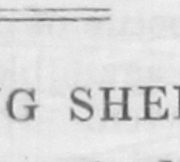
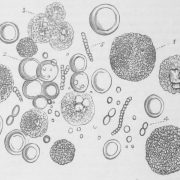
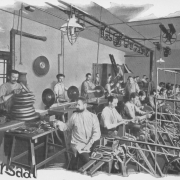
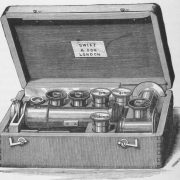
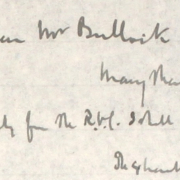
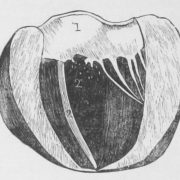
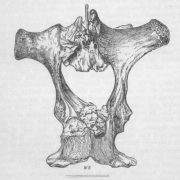
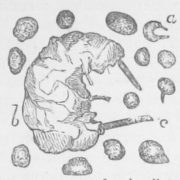


Leave a Reply
Want to join the discussion?Feel free to contribute!